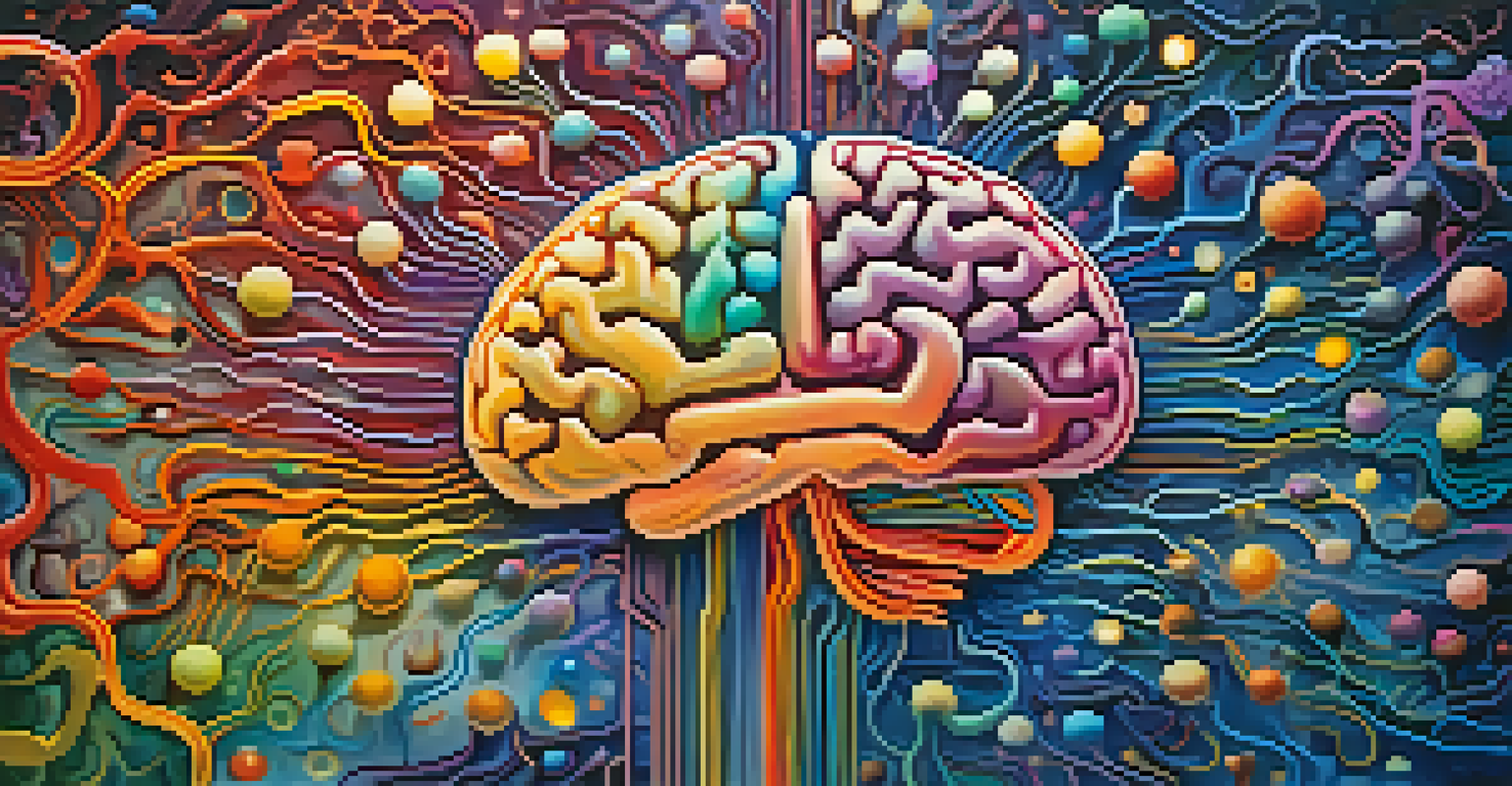Understanding Intuition: The Power of Instinctive Knowledge

What is Intuition and Why Does It Matter?
Intuition is often described as that gut feeling or instinct we experience when making decisions. It’s a complex interplay of our emotions, experiences, and subconscious knowledge that guides us, often without us even realizing it. Understanding intuition is crucial because it can significantly influence our choices in both personal and professional contexts.
The intuitive mind is a sacred gift and the rational mind is a faithful servant. We have created a society that honors the servant and has forgotten the gift.
Many people dismiss intuition as mere guesswork, but it's more nuanced than that. Think of it as your brain's way of processing information quickly, drawing from your past experiences and knowledge that you might not be consciously aware of. This instinctive knowledge can sometimes lead to better outcomes than logical reasoning alone.
For example, a seasoned chef may instinctively know the right balance of flavors in a dish, even if they can’t articulate why. This kind of instinctive knowledge is built up over years of practice and experience, demonstrating that intuition is not just random but deeply rooted in our past.
The Science Behind Intuition
While intuition feels like a mysterious force, there’s science backing it up. Research in psychology suggests that our brains are constantly processing information, even when we’re not consciously aware of it. This background processing helps form intuitive insights, allowing us to make quick decisions based on accumulated experiences.

Neuroscience also shows that the brain's right hemisphere plays a significant role in intuitive thinking. This part of the brain is responsible for holistic processing and can synthesize information rapidly, leading to those 'aha' moments. It’s fascinating to realize that our brains are working behind the scenes to guide us every day.
Understanding Intuition's Role
Intuition is a complex blend of emotions and experiences that guides our decision-making, often leading to better outcomes than logic alone.
A practical example is a firefighter who can sense danger in a burning building before it becomes apparent. This ability to read the situation and respond instinctively can save lives and highlights how intuition is often a matter of survival, honed through experience and training.
The Benefits of Trusting Your Intuition
Trusting your intuition can lead to more confident decision-making. When you learn to listen to that inner voice, you often find that your choices align better with your true self and values. This alignment can lead to greater satisfaction in both your personal and professional life.
Trust your instincts. Intuition doesn’t contradict your knowledge, it complements it.
Moreover, research indicates that intuitive decisions can sometimes yield better results than analytical ones, especially in uncertain situations. For instance, when faced with a significant choice, like changing careers, trusting your gut can help you navigate the ambiguity with more clarity.
Imagine you're at a crossroads, deciding between two job offers. Your analytical side might weigh the pros and cons, but your intuition might nudge you toward one option, perhaps because of a good feeling about the company culture. Listening to that instinct can lead you to a more fulfilling path.
How to Cultivate Your Intuition
Cultivating intuition is a skill that can be developed over time. One effective method is to practice mindfulness, which helps you become more aware of your thoughts and feelings. By quieting your mind and tuning into your body, you can better recognize those instinctive nudges when they arise.
Another way to enhance your intuitive abilities is through reflection. After making decisions, take time to reflect on the outcomes and how your intuition played a role. This practice can help you understand when to trust your gut and when to rely on analytical thinking.
Cultivating Intuition Skills
Practicing mindfulness and reflection can help enhance your intuitive abilities, allowing you to trust your gut feelings more effectively.
For example, keep a journal where you note down decisions made by intuition and their results. Over time, you’ll start to see patterns and learn how your intuition communicates with you, which can strengthen your ability to rely on it in the future.
Intuition vs. Instinct: Understanding the Difference
While intuition and instinct are often used interchangeably, they are distinct concepts. Instinct is a biological response, hardwired into our system, often related to survival, like flinching from danger. On the other hand, intuition is more about processing experiences and knowledge and can be influenced by our emotions and thoughts.
To illustrate, consider how animals react to danger; their instincts kick in automatically. In contrast, when a person senses impending danger through intuition, they might recall past experiences that shape that feeling. This understanding can help us navigate our decisions more effectively.
Recognizing the difference is essential, as it allows us to appreciate the nuanced ways our brains and bodies work together. By understanding both concepts, we can learn when to rely on primal instincts and when to tap into our more complex intuitive processes.
Overcoming Doubts About Intuition
Many people struggle with self-doubt when it comes to trusting their intuition. It’s common to second-guess that gut feeling, especially when faced with pressure or uncertainty. Acknowledging these doubts is the first step towards overcoming them and learning to trust your instincts.
One way to combat doubts is to gather evidence from past experiences. Reflect on times when following your intuition led to positive outcomes, reinforcing your trust in that inner voice. This practice can help build confidence and diminish the fear of making mistakes.
Practical Uses of Intuition
Intuition plays a key role in personal and professional contexts, helping individuals navigate relationships and make strategic decisions.
For instance, if you had a strong intuition about a job opportunity that turned out well, remind yourself of that success the next time you feel uncertain. By creating a mental library of intuitive successes, you can bolster your confidence and become more adept at trusting your instincts.
Practical Applications of Intuition in Daily Life
Intuition can be a powerful tool in various aspects of daily life, from personal relationships to career decisions. For example, when meeting someone new, your gut feeling about their character can guide you in forming connections. This instinctive knowledge can help you avoid potential conflicts or misunderstandings.
In the workplace, intuition can aid in making strategic decisions. Leaders often rely on their instincts to gauge team dynamics or assess market trends, allowing them to pivot quickly in response to changes. This ability to read between the lines can be invaluable in a fast-paced environment.

Consider a manager who senses that a team member is struggling, even if they haven’t voiced their concerns. Acting on that intuition can lead to supportive conversations that foster a healthier work environment. By embracing intuition in everyday life, we can navigate our paths more effectively.